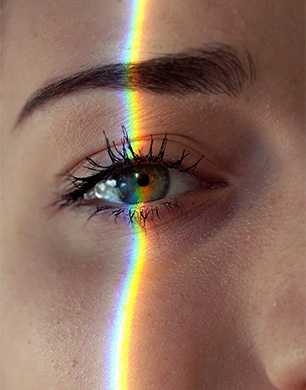
Photo Credit: The Devil via www.pexels.com
Questions pertaining to how to maintain or improve your eye’s health are common. Read on for ways to do just that.
4 Ways to Keep Your Eyes Healthy
Eye health is a prominent concern for those who live without vision impairment and with vision impairment, even when compared with body and mental health. Sight is, obviously, a key factor for how humans perceive the world. It is built and standardised for those who can see without significant impairment. For anyone to imagine losing this is impossible. Living without them isn’t impossible, but they are precious. Here are 4 ways to keep your eyes healthy.
Quit Smoking
Smoking tobacco products contributes to a lot of body health problems. Cancer, heart disease, and strokes are just a few examples. It also has a complicated relationship with mental health: many smokers describe how tobacco helps reduce anxiety and stress but studies show that it increases both of these.
There is no doubt it affects eye health. It increases the chance of cataract – a disease where the lens of the eye slowly clouds up, affecting one or both eyes, causing vision impairment and can result in blindness. Replacing the damaged lens with an artificial lens is how cataracts are treated.
Smoking increases blood pressure which can cause glaucoma. This is where the optic nerve becomes damaged. Surgery, eye drops, and laser treatment can prevent the eyes becoming worse, but sight will not recover.
Dry eye disease – where the eye doesn’t produce enough tears or they evaporate too quickly – is linked with smoking too.
Regular Eye Tests
Having regular eye tests will ensure you are up-to-date with your eye health. Optometrists can track changes and developments in your eyes with more regular data, ensuring you begin treatment as early as possible, if necessary. AI and other technological developments are speeding up the process of producing and assessing scans. If your family history indicates trouble with eye health, then they can inform you how your eyes look in relation to this too.
For instance, corneal disease can be hereditary. It affects the outermost lens of the eye (the cornea). There are three distinct variants of the disease: it can become cone-shaped, swollen, or there can be a build-up of fluids. It disproportionately affects poor people around the world but anyone can suffer from it. The Tej Kohli Foundation’s mission is to eliminate corneal blindness through their innovative technology and enabling victims to access their treatments.
Eat Well
A healthy, balanced diet is the key to body and mental health, and it’s no different for eyes. Obesity and type-2 diabetes are leading causes of blindness in adults, and can be avoided with an appropriate diet. Here are a few nutrients which help your eye health: vitamin A (found in dairy products, meat, and kale, spinach, and carrot), gamma-linolenic acid (found in plant seed oils), omega-3 fatty acids (found in oily fish and, for vegans, various seeds, seaweed, and algae), vitamin C (found in citrus fruits), and zinc (sound in oysters, peanuts, and meat).
Wear Sunglasses and Protective Equipment
The sun can set a mood for a photo – adds great beauty as itself or with its light – but don’t look directly at it and don’t spend too much time out in strong sunlight with sunglasses. UV rays can increase the chances of getting cataracts.
Scratches on the eye can be dangerous and have lasting effects. Wearing goggles during situations where grit, sawdust, or other material or debris can impact your eye is best practice.

